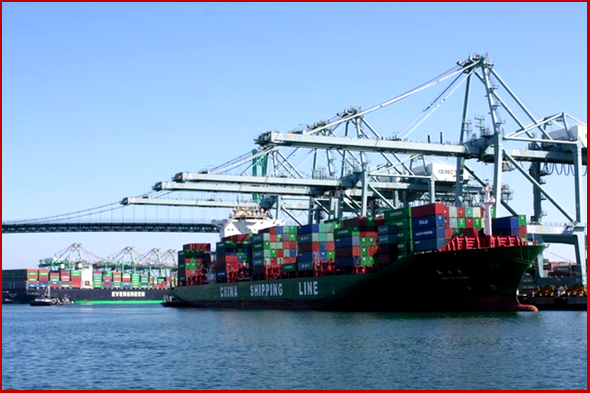Click for more information.
Ken Zino of AutoInformed.com on deadly pollution from China Shipping Terminal at the Port of Los Angeles and Decarbonizing Shipping Fleets – a complex uncertain course.
Shipping companies, as with other progressive and awakened corporate citizens, spurred by regulation, customer demand, investor pressure, and internal goals, are probing ways to decarbonize fleets. Greener-fuel possibilities abound in the maritime world, and the industry is in a period of experimentation and exploration to understand the implications of adopting such fuels, according to t note from the respected McKinsey consultancy received by AutoInformed today.
To learn how industry leaders are thinking about future fuels, the Global Centre for Maritime Decarbonisation, the Global Maritime Forum, and the Mærsk McKinney Møller Center for Zero Carbon Shipping conducted a survey (with analytical support provided by McKinsey) of shipping companies. Collectively, these companies own and operate fleets – including container ships, tankers, dry bulkers, gas carriers, car carriers, cruise ships, tugs, and offshore vessels – comprising ~20% of the world’s total capacity.
The view that emerges from respondents’ answers portrays a domain with a wide range of fuels in the mix through 2050. Many respondents expect their fleets to run on multiple types of fuel well into the future.


